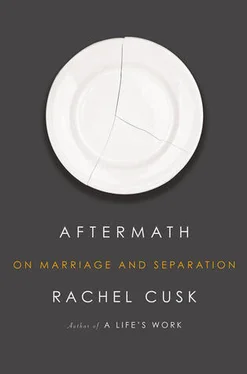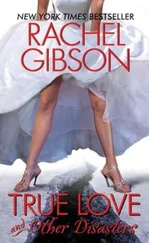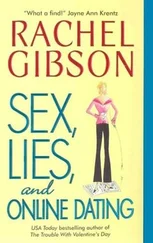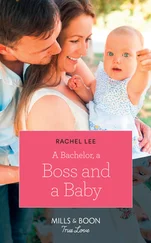Rachel Cusk - Aftermath - On Marriage and Separation
Здесь есть возможность читать онлайн «Rachel Cusk - Aftermath - On Marriage and Separation» весь текст электронной книги совершенно бесплатно (целиком полную версию без сокращений). В некоторых случаях можно слушать аудио, скачать через торрент в формате fb2 и присутствует краткое содержание. Год выпуска: 2012, Издательство: Farrar, Straus and Giroux, Жанр: Публицистика, Биографии и Мемуары, на английском языке. Описание произведения, (предисловие) а так же отзывы посетителей доступны на портале библиотеки ЛибКат.
- Название:Aftermath: On Marriage and Separation
- Автор:
- Издательство:Farrar, Straus and Giroux
- Жанр:
- Год:2012
- ISBN:нет данных
- Рейтинг книги:3 / 5. Голосов: 1
-
Избранное:Добавить в избранное
- Отзывы:
-
Ваша оценка:
- 60
- 1
- 2
- 3
- 4
- 5
Aftermath: On Marriage and Separation: краткое содержание, описание и аннотация
Предлагаем к чтению аннотацию, описание, краткое содержание или предисловие (зависит от того, что написал сам автор книги «Aftermath: On Marriage and Separation»). Если вы не нашли необходимую информацию о книге — напишите в комментариях, мы постараемся отыскать её.
Aftermath: On Marriage and Separation — читать онлайн бесплатно полную книгу (весь текст) целиком
Ниже представлен текст книги, разбитый по страницам. Система сохранения места последней прочитанной страницы, позволяет с удобством читать онлайн бесплатно книгу «Aftermath: On Marriage and Separation», без необходимости каждый раз заново искать на чём Вы остановились. Поставьте закладку, и сможете в любой момент перейти на страницу, на которой закончили чтение.
Интервал:
Закладка:
At the counter the women are absorbed in their task. They haven’t realised, perhaps, that we are here. We could leave and they would never know that we had come. My friend goes to the counter. Excuse me, she says, and all three of them look up.
THE RAZOR’S EDGE
My great-uncle and — aunt were husband and wife for more than seventy years, and to talk to them was to walk the razor’s edge of marriage, where self meets other. Do you like music, uncle? Oh yes I’m very fond of music, but she can’t tell the difference between Beethoven and ‘Jingle Bells’. Aunt, what are your summer plans? I’d like to go to Spain, but of course he won’t go there, he says he can’t stand the people.
As a child I liked to visit their house, where my great-uncle’s golf clubs stood in a leather stand in the hall and my aunt’s knitting machine, like a vast steel spider in its trap of yarns, could be glimpsed through the spare-room door. Unlike ours, their Christmas-tree decorations were the edible kind: they would give us one each when we left, taking the little foil-wrapped chocolate shapes down from the branches. Their sitting room smelled of Pledge and of the long, silken-haired lapdogs they kept, and under the window was a tan-coloured piano whose lid was always closed. My uncle often talked of how he used to play, but one day I asked him to and stood beside him in acute embarrassment while his large old hands moved meaninglessly around the keys. How was it possible to forget to play the piano? It was alarming to me, at eight or ten, to learn that competence could be lost as well as gained, that life was not merely a series of acquisitions and enlargements, of linear evolutions. Apparently it was possible to go backwards: blankness and ignorance were things to which one could be returned at any time.
He never bothered to keep it up, my aunt said.
She never liked it when I played, my uncle said.
To each other they were He and She, the primary object, the thing that was not I. They had met and married at nineteen, had children together, lived together through war and peace. As they grew older they became ever more concrete to one another, while their own selves grew increasingly formless; after seventy years of marriage they were imprisoned in one another like water imprisoned in its courses of sculpted rock. Often they would neglect to mention themselves at all, as though they had become less real to themselves, were vague spaces of pure inference, like shadows.
Are you enjoying the garden in this lovely weather, uncle?
She says that at our age we ought to be living in town because of the services.
Once, perhaps, their differences had invigorated them, but as time passed they seemed to find something more troubling in them, something whose deadliness became ever more apparent as they themselves neared death. It was as though, in old age, they were coming to the realisation that because of one another they had not lived. Then, one day, my uncle did die, and for a few weeks my aunt was as though lit up by a great flash of lightning. She blazed with wild, unrefined life, threatened to alter the will that represented her first experience of financial independence, played one family member off against another, bristled with new opinions and a new intransigence that could, earlier in her life, have become authority but now was a tragicomic parody of it. She uttered heresies on the subjects of marriage and motherhood that had the gunpowder smell of personal truths, argued with and disinherited her children, and then, all at once, like the sea after a storm, retracted into a profound passivity. She lay in bed, beside a small framed photograph of my uncle taken in earlier years. ‘That’s him’ was all she’d say, to those who visited and who, abruptly, she no longer appeared to recognise. She was moved to a nursing home, and in the beige hush of her featureless room lay day in and day out with the photograph in her hand, unspeaking and unmoving, until she herself was no more.
I have entered a phase of resistance, of reaction. The sight of families makes me irritable. In the park they pass me on bicycles, mother and father and children, all clad in safety helmets and luminescent strips and rucksacks containing emergency supplies. They make manifest their own fear: their obsession with their safety is evident. Of what, precisely, are they afraid? They call out orders and directions to one another, as though the rest of us were uncomprehending natives.
I blame Christianity — as far as I can see, that’s where the trouble started. The holy family, that pious unit that sucked the world’s attention dry while chastising it for its selfishness, that drew forth its violence and then in an orgy of self-glorification consigned it to eternal shame, that sentenced civilisation to two millennia of institutionalised dishonesty; compared with the households of Argos and Thebes, that family has a lot to answer for. In the park I view them through narrowed eyes, these well-organised heirs of Christian piety. They seem to me to have taken all the fun out of life: spoilsports! What happened to passionate conflict and reunion, the kinetic of man and woman that drives the life blood around the body? These men and women now wear protective helmets to pass through a public park. From a bench I ruminate on it darkly. The day feeble Joseph agreed to marry pregnant Mary the old passionate template was destroyed. That was an act of fundamental dishonesty all round: the new template of marriage — a lie! The family was reinvented, a cult of sentimentality and surfaces; became an image, bent on veiling reality — the stable in all its faux-humility, the angels and the oxen, the manger to which kings come on bended knee, the ‘parents’ gathered adoringly round the baby — an image of child-worship, of sainted unambivalent motherhood, of gutless masculinity and fatherly impotence. And it still comes through the twenty-first-century letterbox at Christmastime; I remind myself not to send any cards this year.
These days, of course, the ancient Greeks are back in fashion: we find their honesty, their emotional violence, their flouting of taboos therapeutic and refreshing. We sit in exquisitely neutral consulting rooms, discuss our Electra complex; but at the end of it all we go home to the manger and the holy child, to the roles and relationships that constitute our deepest sense of family reality, though they themselves are not real. Reality is our visceral knowledge and desires: the image exists to control them, and out of them creates a strange half-reality of its own. And I too was once in uneasy thrall to that image, directed by it as by a puppeteer unseen in the darkness of the wings. Its propriety and its safety chastised me, consigned me to eternal shame; yet it seemed the only thing it had to teach — like any image — was to be more like itself.
So now I find that the sight of those cycling families calls for the intellectual equivalent of a stiff drink, and I procure it in the form of the ancient dramas. There are no devoted mothers here, no perfect children, no protective dutiful fathers, no public morality. There is only emotion, and the attempt to tame it, to shape it into a force for good. The question of what constitutes authority, in the tempestuous Greek world of feeling and psychological fate, with its mingling of mortality and divinity, is eternal and unresolved. It is a question with which I am preoccupied too: what will authority be, where will it come from, in my post-familial household?
There’s a moment in Sophocles’s play Antigone when something new is born, or rather, when one thing becomes two; when one kind of authority is no longer enough and must produce a second, just as Christianity would itself propose two authorities, the authority of the creator — God — and the authority — Jesus — of self-sacrifice. The play is set in Thebes, in the immediate wake of the Oedipal drama. King Oedipus has blinded himself and been expelled to wander the catacombs of Athens as a beggar. His wife Jocasta, having learned that she was also his mother, has killed herself. His two sons, Eteocles and Polylectes, have murdered one another in their failed attempt to share power. Creon is Jocasta’s brother: Oedipus’s sons being dead, the burden of leadership has passed to him.
Читать дальшеИнтервал:
Закладка:
Похожие книги на «Aftermath: On Marriage and Separation»
Представляем Вашему вниманию похожие книги на «Aftermath: On Marriage and Separation» списком для выбора. Мы отобрали схожую по названию и смыслу литературу в надежде предоставить читателям больше вариантов отыскать новые, интересные, ещё непрочитанные произведения.
Обсуждение, отзывы о книге «Aftermath: On Marriage and Separation» и просто собственные мнения читателей. Оставьте ваши комментарии, напишите, что Вы думаете о произведении, его смысле или главных героях. Укажите что конкретно понравилось, а что нет, и почему Вы так считаете.












